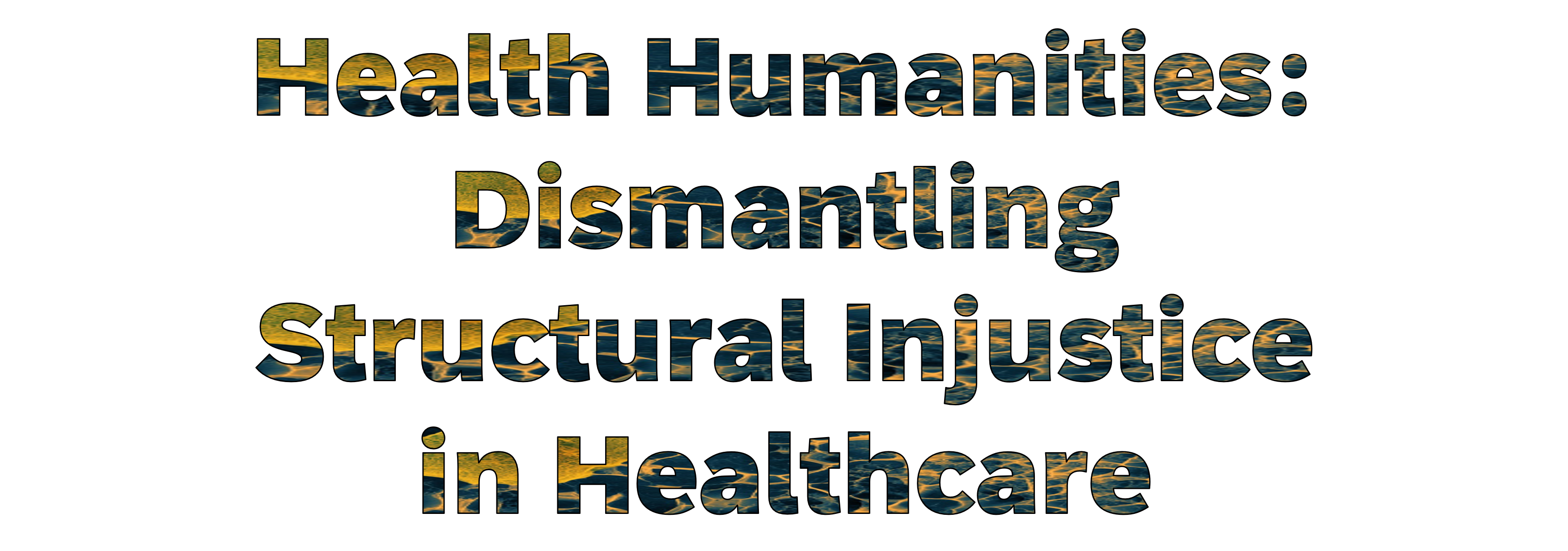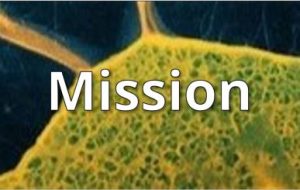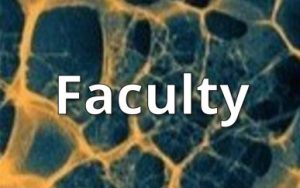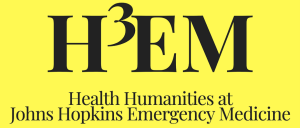National Endowment for the Humanities Institute for Health Professions Education Faculty
Held virtually from April through October 2024
Johns Hopkins University School of Medicine

How can health professions educators leverage the Health Humanities towards a more just future in clinical and training environments?
Health professions educators are facing an imperative need to identify creative and effective ways to train health professionals to better understand personal and structural contributors to injustice and healthcare inequities. In recent years, organizations like the World Health Organization, the National Academies for Sciences, Engineering and Medicine and the Association of American Medical Colleges have recognized the essential value of the arts and humanities in health professions education (HPE). The health humanities, in particular, with their commitment to social justice, may represent an ideal framework for elucidating and dismantling structural injustice in health and to collaboratively reimagine what idealized versions of our systems can be.
This virtual longitudinal institute will empower health professions faculty to leverage the health humanities in their educational and scholarly practice, while creating a unique community of practice at the forefront of a cutting-edge movement to meaningfully integrate humanities in health professions education. Designed for physicians or nurses involved in HPE, this course will provide an introduction to the health humanities, structural competency, history and theories of racism in healthcare, and health humanities-based approaches to addressing injustice. Through engagement with leaders in the health humanities and healthcare, participants will gain familiarity with foundational elements of the health humanities and key tenets of structural competency. By investigating how scientists and doctors biologized the political notion of race, we will understand more fully what it means that race is socially constructed.
World-renowned experts will share with us various perspectives on theories of racism, research ethics, methods, and analysis. Each conversation will begin with collaborative facilitated discussions which apply strategies from narrative medicine and/or museum-based education to generate open discussion in a psychologically safe space while demonstrating how humanities-based pedagogies can be used to generate difficult discussions with colleagues and trainees, and a session led by clinician-educators will provide frameworks for translating humanities-based approaches to the classroom. Along the way, participants will pair structural competency with methodological tools in research and education to access, address, and teach about structural injustices in their own health care settings. We will also learn from examples of community medicine. Participants will end the course designing and implementing a capstone project advised directly by one of the five Faculty Advisors; focusing on a structural injustice participants identify within their own institutions, this project may take the form of a scholarly paper, instructional module/curriculum, or both. They will present this completed project at a research symposium, Dismantling Structural Injustice in Healthcare, hosted by Johns Hopkins University at the close of the course.
There is no cost associated with attending this institute. Participants will receive a stipend of $1,100.
Applications are due by March 5, 2024 at 11:59 pm Pacific
Applicants will be notified about acceptance by April 5, 2024
Applicants selected to participate must indicate their acceptance by April 19, 2024

This course is designed to equip health practitioners to understand and address structural injustices in health and medicine using the health humanities. Accordingly, the course offers an overview of the history of racism in healthcare, an introduction to health humanities, and key tenets of structural competency. By investigating how scientists and doctors biologized the political notion of race, we will understand more fully what it means that race is socially constructed. World-renowned experts will share with us various perspectives on theories of racism, research ethics, methods, and analysis. Each conversation will begin with collaborative facilitated discussions which apply strategies from narrative medicine and/or museum-based education to generate open discussion in a psychologically safe space while demonstrating how humanities-based pedagogies can be used to generate difficult discussions with colleagues and trainees, and a session led by clinician-educators will provide frameworks for translating humanities-based approaches to the classroom. Along the way, participants will pair structural competency with methodological tools in research and education to access, address, and teach about structural injustices in their own health care settings. We will also learn from examples of community medicine. Participants will end the course designing and implementing a capstone project advised directly by one of the five Faculty Advisors; focusing on a structural injustice participants identify within their own institutions, this project may take the form of a scholarly paper, instructional module/curriculum, or both. They will present this completed project at a research symposium, Dismantling Structural Injustice in Healthcare, hosted by Johns Hopkins University at the close of the course.
Learning Objectives:
At the end of the course, participants will be able to:
- Design a research methodology, instructional module, or curriculum using health humanities-based approaches
- Understand how the health humanities can engage with structural injustices in healthcare
- Critically investigate and question inequities in healthcare environments from multiple humanistic and social science perspectives
- Relate materials in the course to their own specialties and clinical practice
- Learn, adapt, and implement research and educational methodologies to address injustices in clinical settings
Faculty Advisors:
Kamna Singh Balhara, M.D., M.A (Johns Hopkins School of Medicine)
Nathan Alex Irvin, M.D. (Johns Hopkins School of Medicine)
Alexandre White, Ph.D. MSc. M.A. (Johns Hopkins School of Medicine)
Jeremy Greene, M.D. Ph.D M.A. (Johns Hopkins School of Medicine)
Heidi Nicholls, Ph.D. M.A. (Johns Hopkins University)
COURSE SCHEDULE
Tuesdays, 7:00 – 9:00 p.m. ET
All sessions meet over Zoom and individual dates may be subject to change.
In addition to group sessions listed below, participants will individually meet on a monthly basis with faculty advisors. In order to meet the requirements of completion and to build camaraderie within the group please expect to attend all meetings. If any scheduling conflicts are anticipated, please discuss with the project directors or instructors in advance.
April 30th, 2024: INTRODUCTION TO HEALTH HUMANITIES AND SOCIAL MEDICINE FOR STRUCTURAL COMPETENCY
May 21st, 2024: STRUCTURAL COMPETENCY IN PRACTICE: ADVOCACY AND CLINICAL CARE
DUE 5/21: Structural Injustice Reflection: Identifying an injustice in your clinical settings
May 28th 2024: THEORIES OF RACISM
June 11th, 2024: THE BIOLOGIZATION OF RACE IN MEDICINE
DUE 6/11: Project Sketch
June 25th, 2024: RACE IN CLINICAL SETTINGS
DUE 7/9: Contextualizing the Site: historical and social background of your clinical site
July 16th, 2024: POWER & ETHICS
DUE 7/23: Draft: ethical concerns in potential research
July 30th, 2024: RESEARCH METHODS
Due 7/30: Draft Capstone Project Proposal
August 13th, 2024: HEALTH HUMANITIES AS A PEDAGOGICAL FRAMEWORK
August 27th, 2024: COMMUNITY MEDICINE
DUE 8/20: Final Research Proposal
September 3rd, 2024: RACISM, STRUCTURAL COMPETENCY AND MENTAL HEALTH
Due 9/17: Course Reflection
**September through October: participants conduct their own independent research and meet regularly with their research advisors.
OCTOBER 11th and 12th, 2024: CAPSTONE SYMPOSIUM: DISMANTLING STRUCTURAL INJUSTICE

Hover over (desktop) or click (mobile) faculty images to see their bios.
Directors
Alexandre White
Dr. Alexandre White, PhD (co-director) is an assistant professor of history of medicine and sociology in the Johns Hopkins Krieger School of Arts and Sciences and .associate director for the Center for Medical Humanities and Social Medicine. He is an expert in the sociology of race and ethnicity and comparative historical sociology. His work examines the social effects of infectious epidemic outbreaks in both historical and contemporary settings as well as the global mechanisms that produce responses to outbreak. Dr. White has published extensively in social science journals on the topics of racism, slavery and medicine including in the journals, Sociology of Race and Ethnicity, Theory and Society and Social Science History. He is the editor of the volume Global Historical Sociology of Race and Racism and has published in medical journals such as the British Medical Journal, the New England Journal of Medicine and the Lancet. His book Epidemic Orientalism: Race, Capital and the Governance of Infectious Disease was published this year from Stanford University Press and explores the historical roots of international responses to epidemic threats.
Jeremy Greene
Dr. Jeremy Greene, MD, PhD (senior faculty, replacement director) is a historian and a practicing internist and the William H Welch Professor of Medicine and the History of Medicine at Johns Hopkins University School of Medicine. He directs both the Institute of the History of Medicine and the Center for Medical Humanities and Social Medicine at Johns Hopkins, and holds cross-appointments in the Department of Anthropology and the Department of the History of Science and Technology. He is the co-Editor-in-Chief of the Bulletin of the History of Medicine, the official journal of the American Association for the History of Medicine (AAHM), and his books and articles have won several awards from the AAHM as well as the American Institute for the History of Pharmacy, the History of Science Society, the Society for Social Studies of Science, the American Public Health Association, and the American College of Physicians for his work in the interdisciplinary medical humanities. He served on the Foundational Role of Arts and Humanities in Medical Education (FRAHME) committee of the AAMC, and his work has been supported by the Mellon Foundation, the National Library of Medicine, and the National Science Foundation.
Heidi Nicholls
Dr. Heidi Nicholls, PhD (senior faculty) is a sociologist of race and colonialism, a Mellon/Black Beyond Data postdoctoral fellow, and a Council on Library and Information Resources fellow. Her scholarly work focuses on the settler colonial structure of racial politics in the United States and the divergent ways settler colonists racialized Black, Indigenous, and migrant populations from the 16th century to the present. Through this work, she demonstrates how race, far from a biological reality, is a tool of imperialism and political control. As an experienced instructor of race, health inequities, and structural competence, she will help plan and implement the curriculum. She also has expertise in qualitative research methods, research ethics, and conducting applied public health research. She will advise participants in their research and pedagogy projects and help facilitate group discussion during key sessions.
Kamna Balhara
Dr. Kamna Balhara, MD (co-director) is an emergency physician and Associate Professor in the department of Emergency Medicine and Assistant Professor in the department of Medicine, Science, and Humanities in the Zanvyl Krieger School of Arts and Sciences. Dr. Balhara is also an Associate Director of the EM Residency Program at Johns Hopkins and founding co-director of the Health Humanities at Hopkins Emergency Medicine (H3EM) initiative. An innovator in the health humanities, she has implemented humanities-based curricula for medical students, residents, and faculty from across specialties. She also directs a longitudinal interdisciplinary institution-wide health equity and humanities distinction track for residents. She was selected as a Harvard Macy Institute Art Museum-Based Health Professions Education Fellow and has authored multiple publications on humanities, social determinants of health, disparities in healthcare access, and inclusive recruiting practices for healthcare trainees. Her work has been funded by the Josiah Macy Foundation and the Foundational Role of Arts and Humanities in Medical Education (FRAHME) committee of the AAMC. Her ongoing scholarship, with a subaward from the Mellon Foundation, focuses on the legacy of racism in emergency medicine through archival research and oral histories. In collaboration with Dr. Irvin, Dr. Balhara maintains a humanities-based resource for health professions educators seeking to educate trainees on anti-racism (www.sharetools.org). She is an elected member of the steering committee of the Health Humanities Consortium and chair of the Medical Humanities Section of the American College of Emergency Physicians.
Nathan Irvin
Dr. Nathan Irvin, MD, MSHPR (senior faculty, replacement director) is an emergency physician, and assistant dean for medical student diversity, equity, and inclusion at Johns Hopkins and co-director for H3EM alongside Dr. Balhara. He is center faculty in the Johns Hopkins Bloomberg School of Public Health’s Center for Mental Health and Addiction Policy and is an expert in social emergency medicine, a discipline that explores the impact of social forces on health. In this capacity Dr. Irvin works on addressing many of the health and behavioral problems that affect people living in urban communities including violence, trauma, HIV/AIDs and substance abuse and is staunch advocate for health equity in marginalized communities and is an educator and mentor for medical students and resident learners in this space.
Marian Robbins
Marian Robbins, MA, the Administrative Program Coordinator for the Center for Medical Humanities & Social Medicine and the Institute for the History of Medicine, is the institute’s Project Administrator. She has been working for Johns Hopkins University for ten years and has coordinated and collaborated in numerous speaker series, conferences, and events among other duties facilitating courses, editing social media and webpages, and more.
Guest Faculty
Our guest faculty consists of leading scholars and healthcare practitioners in the health humanities whose work offers methodological and pedagogical insight into the role of humanities in the elucidation and amelioration of structural health disparities.
Helena Hansen
Dr. Helena Hansen, MD, PhD is an anthropologist and psychiatrist in the leadership of the Center for Social Medicine and Medical Humanities at the University of California, Los Angeles, where she also serves as Interim Chair of the Department of Psychiatry. She is also leading a national movement for training of clinical practitioners to address social determinants of health, which she and Jonathan Metzl call “Structural Competency,” and which is the subject of her second book, Structural Competency in Medicine and Mental Health: A Case-Based Approach to Treating the Social Determinants of Health.
Antoine Johnson
Dr. Antoine Johnson, PhD is a postdoctoral fellow at the Johns Hopkins Center for Medical Humanities and Social Medicine, has been an instructor in the Online MA Program in the History of Medicine and the Introduction to Social Medicine at the Johns Hopkins University School of Medicine. He is currently working on a book based on his dissertation, “More than Pushing Pills: Black AIDS Activism in the Bay Area, 1981-1996,” which explored ways in which Black grassroots organizers confronted HIV/AIDS and structural-medical racism that exposed their communities to infection.
Jason Glenn
Dr. Jason Glenn, PhD is an Associate Professor of History and Philosophy of Medicine at the University of Kansas. His work explores the relationship between the production of biomedical knowledge and mass incarceration.
Carolyn Roberts
Dr. Carolyn Roberts, PhD is a historian of medicine and science at Yale University. She holds a joint appointment in the departments of History/History of Science and Medicine, and African American Studies with a secondary appointment at Yale School of Medicine in the Program in the History of Medicine. Her research interests concern the history of race, science, and medicine in the context of slavery and the Atlantic slave trade.
Anne Pollock
Dr. Anne Pollock, PhD is Professor and Head of the Department of Global Health and Social Medicine at King’s College London explores feminist, anti-racist and postcolonial engagements with science, technology, and medicine. Dr. Pollock has published three books including “Medicating Race: Heart disease and Durable Preoccupations with Difference” (Duke 2012) and “Sickening: Anti-Black Racism and Health Disparities in the United States” (Minnesota 2021).
Rakhi P. Naik
Dr. Rakhi P. Naik, MD, MHS is a hematologist and an Associate Professor of Medicine at Johns Hopkins University. She serves as Clinical Director of the Division of Hematology and as Chair of the American Society of Hematology (ASH) Hematology-Focused Training Program Consortium, which aims to create innovative training pathways.
Carolyn Sufrin
Dr. Carolyn Sufrin, MD, PhD is a physician, anthropologist and an assistant professor of gynecology and obstetrics at the Johns Hopkins University School of Medicine and of health, behavior, and society at the Johns Hopkins Bloomberg School of Public Health. Her research focuses on reproductive health care for incarcerated women. While pursuing her PhD in Anthropology at the University of California, San Francisco, she started a women’s health clinic at the San Francisco County Jail, which continues to provide gynecologic and obstetric care and she has published the book “Jailcare: Finding the Safety Net for Women Behind Bars” (U of California 2017).
Aimee Medeiros
Dr. Aimee Medeiros, PhD is an Associate Professor and Director of the History of Health Sciences Program at UC San Francisco and an affiliated faculty of the Center for Science, Technology, Medicine & Society at UC Berkeley. Dr. Medeiros is one of the founders of the REPAIR Project at UCSF, a three year strategic initiative designed to address Anti-Black Racism and augment Black, Indigenous, People of Color voices and presence in Science and Medicine and healthcare.

This application is now closed for the 2024 Institute. Application results have been sent via email from hhstructuraljustice@gmail.com. If you do not see a response from us, please check your spam folder.
This innovative virtual program is designed for health professions educators across the country who educate health professions trainees at all levels. We are not only seeking participants who are clinicians with leadership roles in education, such as medical school clerkship directors, program directors for residency and fellowship programs, and nursing educators, but also any core faculty engaged in leading courses for health professions trainees or exploring the health humanities. At least five institute spaces will be reserved for non-tenured/non-tenure-track faculty members. Three institute spaces will be reserved for advanced graduate students (this category includes residents and fellows).
We encourage potential participants to become familiar with the goals of the Institute by reading the information about the topic under study, project requirements and expectations of the participants, the academic and institutional setting, and scheduled meeting times.
Please review the NEH Participant Eligibility Criteria, Participant Expectations, and Principles of Civility.
Please note, as stated in the eligibility criteria, that due to NEH restrictions on applicants, we are not able to extend acceptance to Johns Hopkins affiliates.
Interested applicants should complete the application form below, upload a two-page CV, and one-page statement of interest.
Please send any questions to hhstructuraljustice@gmail.com.
Applications are due by March 5, 2024 at 11:59 pm Pacific
Applicants will be notified about acceptance by April 5, 2024
Applicants selected to participate must indicate their acceptance by April 19, 2024
Endowment programs do not discriminate on the basis of race, color, national origin, religion, sexual orientation, disability, or age. For further information, write to the Equal Opportunity Officer, National Endowment for the Humanities, 400 7th Street, SW, Washington, DC 20024. TDD: 202-606-8282 (this is a special telephone device for the Deaf).
Title and banner images are a reworking of the following image under license Attribution 4.0 International (CC BY 4.0): Human stem cell embedded in a 3D matrix, Cryo SEM. Sílvia A Ferreira, Cristina Lopo and Eileen Gentleman, KCL. Source: Wellcome Collection.







